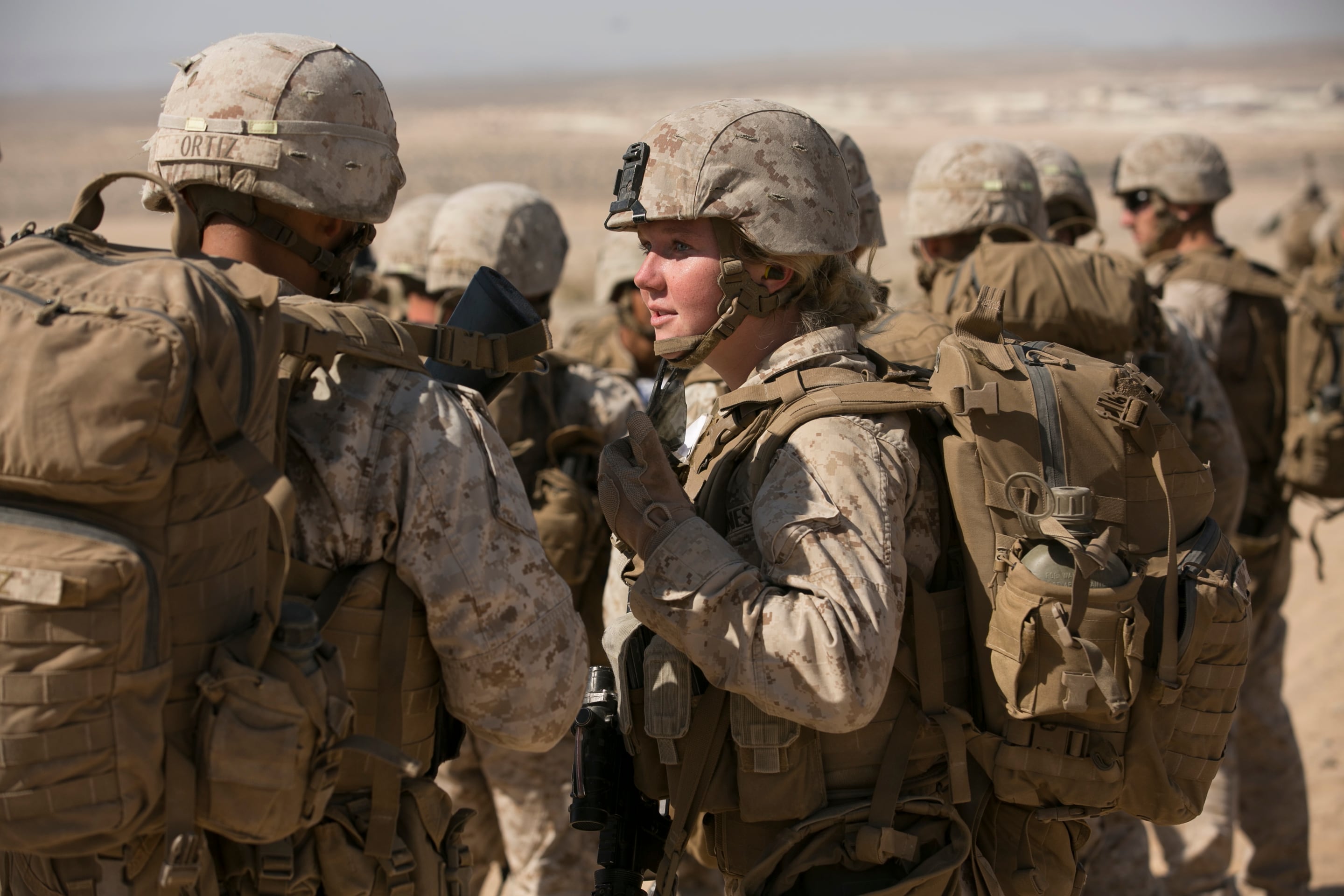The Marine Corps will immediately begin implementing new policies following the defense secretary's decision to open all combat fields to women, and female Marines who've been waiting for the ban to lift have one message: They're ready.
When Defense Secretary Ash Carter announced Thursday that all military jobs will open to women in 30 days, Lance Cpl. Callahan Brown said her phone started ringing like crazy.
"My jaw just dropped," Brown told Marine Corps Times. "When the commandant requested [exemptions], I felt like all hope was lost and like the fight was was all over — that everything for the past year didn't mean anything because it was done with."
Now the effort Brown put into passing Infantry Training Battalion, which was previously only open to male grunts — and making it through to the end of a nine-month experiment in which she served as a rifleman — will pay off. The North Carolina-based cryogenics equipment operator said she plans to put in a request for a lateral move to become an infantry rifleman as soon as possible.
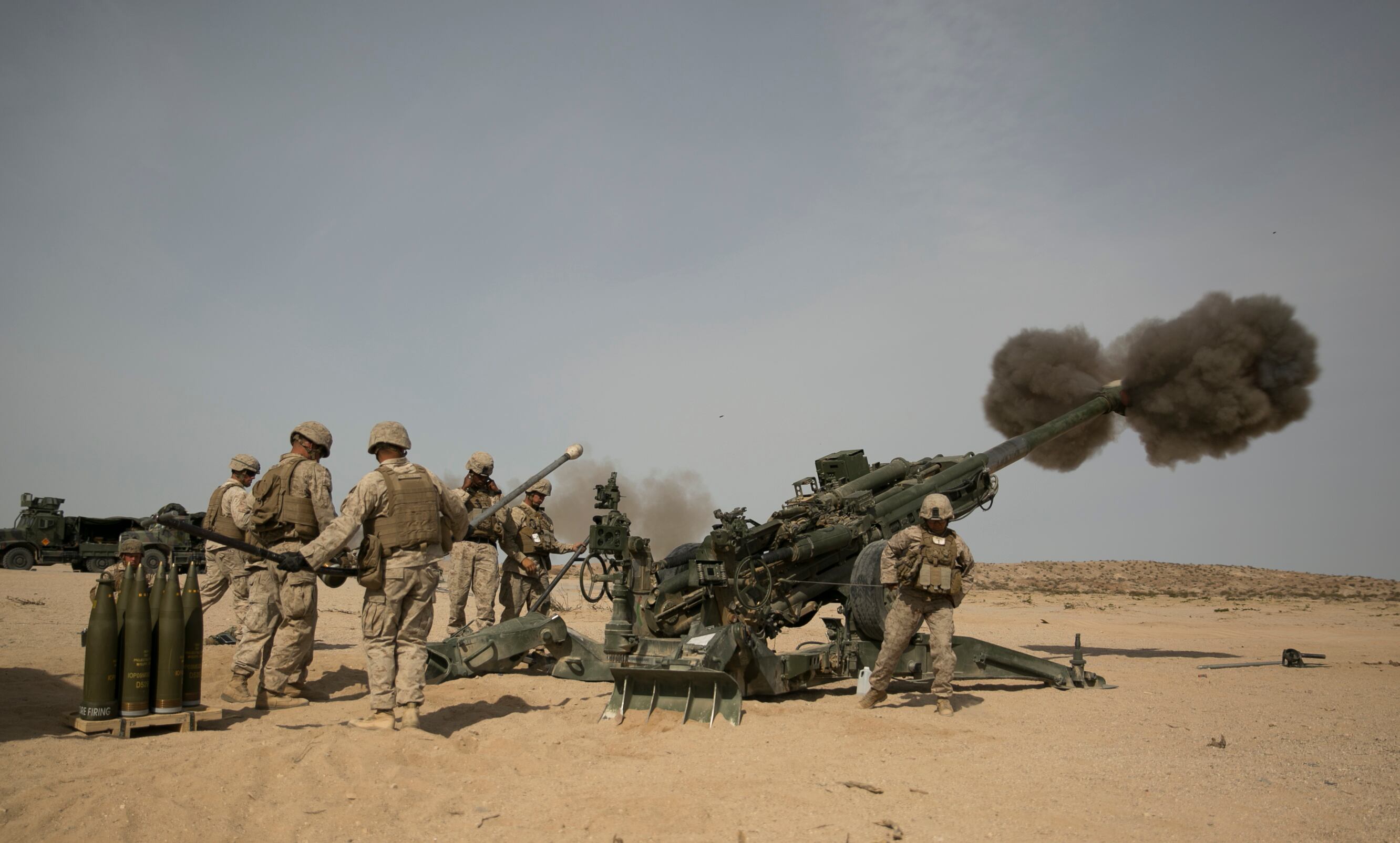
Cpl. Caroline Ortiz, a member of a gun crew with the Ground Combat Element Integrated Task Force, fires a howitzer during an artillery assessment at Marine Corps Air Ground Combat Center Twentynine Palms, Calif.
Photo Credit: Mike Morones/Staff
Cpl. Angelique Preston, a field wireman, also plans to pay her career planner a visit soon. Her goal: to become a field artillery cannoneer after working with howitzers in the California desert during that same experiment.
"I feel like that's where I should be," Preston said of the military occupational specialty that was previously closed to women. "When I initially joined the Marine Corps, that's what I wanted to be."
'Hating life together'
When Brown first reported to ITB and Preston to the artillery unit with the experimental task force, it took a bit of time for the male Marines to accept them, they said.
"At first they were kind of … they didn't really know what to make of us, because they didn't really know how to work with females," Preston said.
Eventually though, once the Marines were just doing their jobs in the field, their gender stopped mattering.
"Camaraderie-wise, misery loves company," she said. "And the field really sucks, so you're all just hating life together."
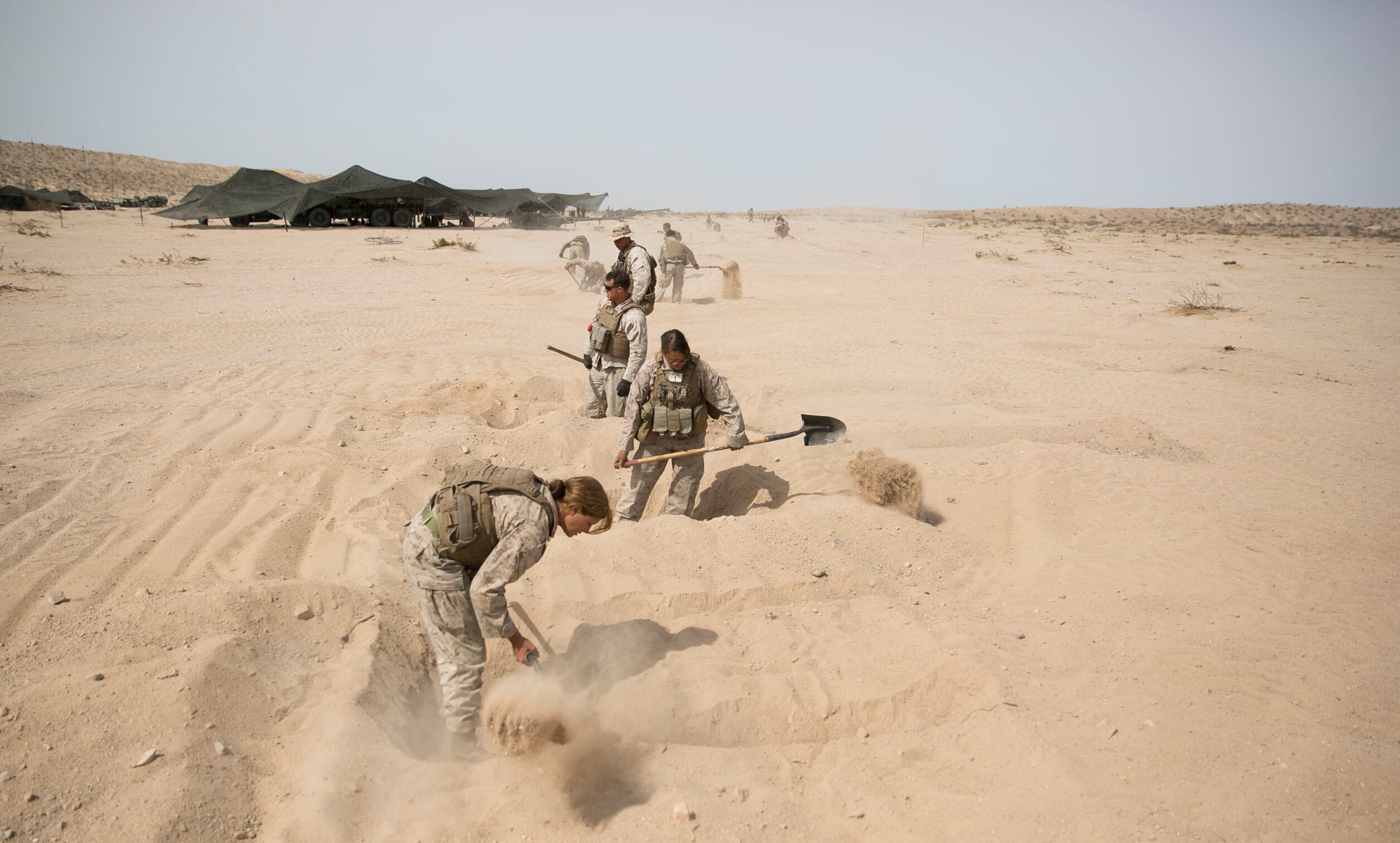
Marines with the artillery section of the Ground Combat Element Integrated Task Force dig fighting holes in a timed assessment at Marine Corps Air Ground Combat Center Twentynine Palms, Calif.
Photo Credit: Mike Morones/Staff
The Marine Corps will "immediately commence the process of further implementing the policy change, to include sharing plans and lessons learned with the other services," said Maj. Chris Devine, a Marine spokesman at the Pentagon. But it will all be done in a way that ensures Marines remain ready to fight — and win, he added.
"We are well-informed by our combat experience, as well as our objective approach and data obtained from the past two years of study," Devine said. "As we move forward with full integration, we'll continue to maintain our standards, while leveraging every opportunity to optimize individual performance, talent and skills to maximize the warfighting capabilities of our [Marine air-ground task forces] in an increasingly complex operating environment."
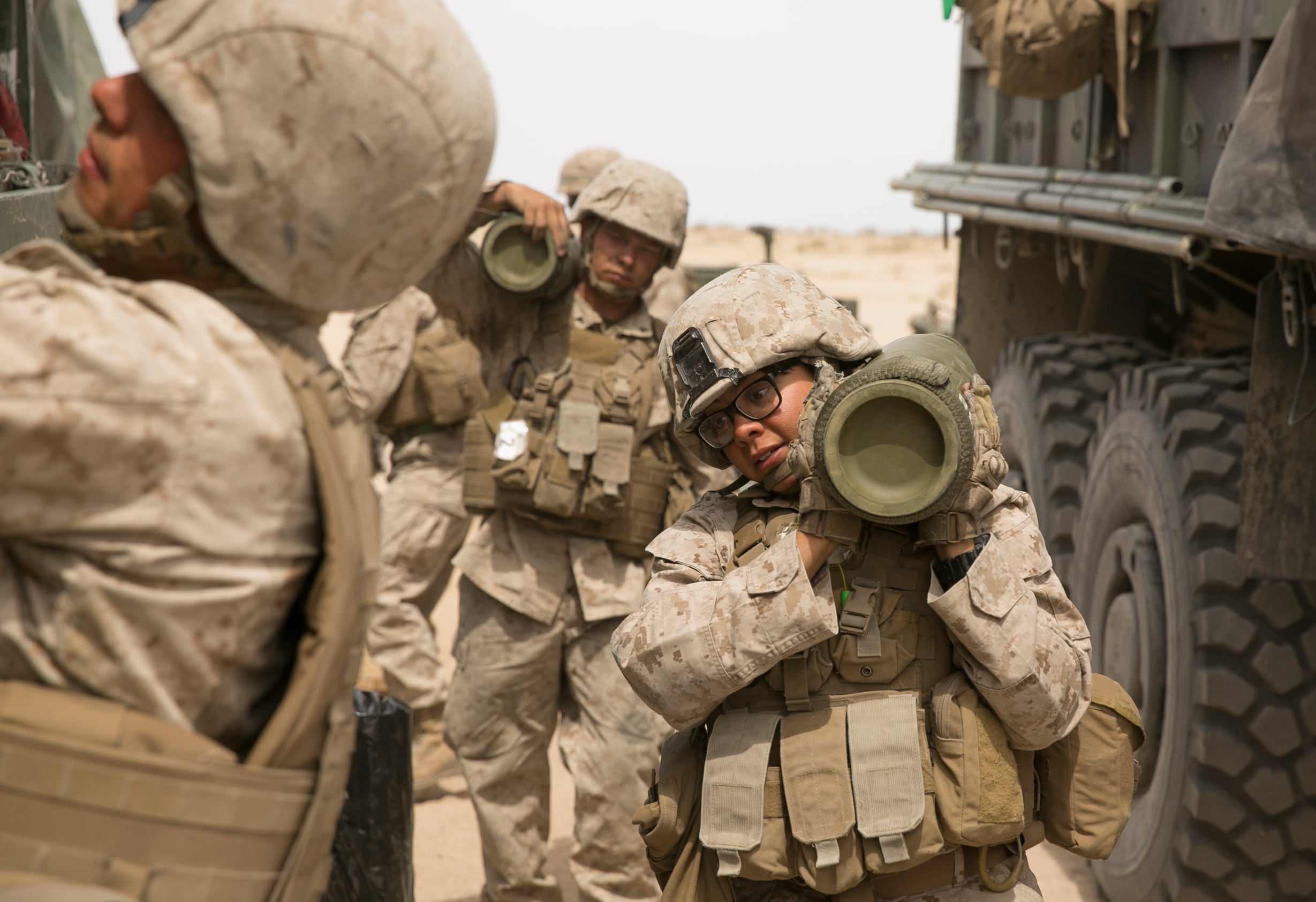
Cpl. Caroline Ortiz carries a shell during an artillery assessment at Marine Corps Air Ground Combat Center Twentynine Palms, Calif.
Photo Credit: Mike Morones/Staff
Both Brown and Preston said proving they could hack it in infantry and artillery units was key to being accepted in all-male units. Even if male Marines were standoffish to start, Preston said that lessened once they saw that she could do the physically demanding job that involved carrying and lifting 100-pound howitzer rounds.
Ahead of Carter's decision, the Marine Corps quietly enacted gender-neutral standards for more than two dozen fields that were likely to open to women Jan. 1. Those standards could make it harder for some women to end up in the newly opened fields, but Lt. Col. Kate Germano, who led the Corps' only all-female recruit training battalion, said it's a vital step toward acceptance.
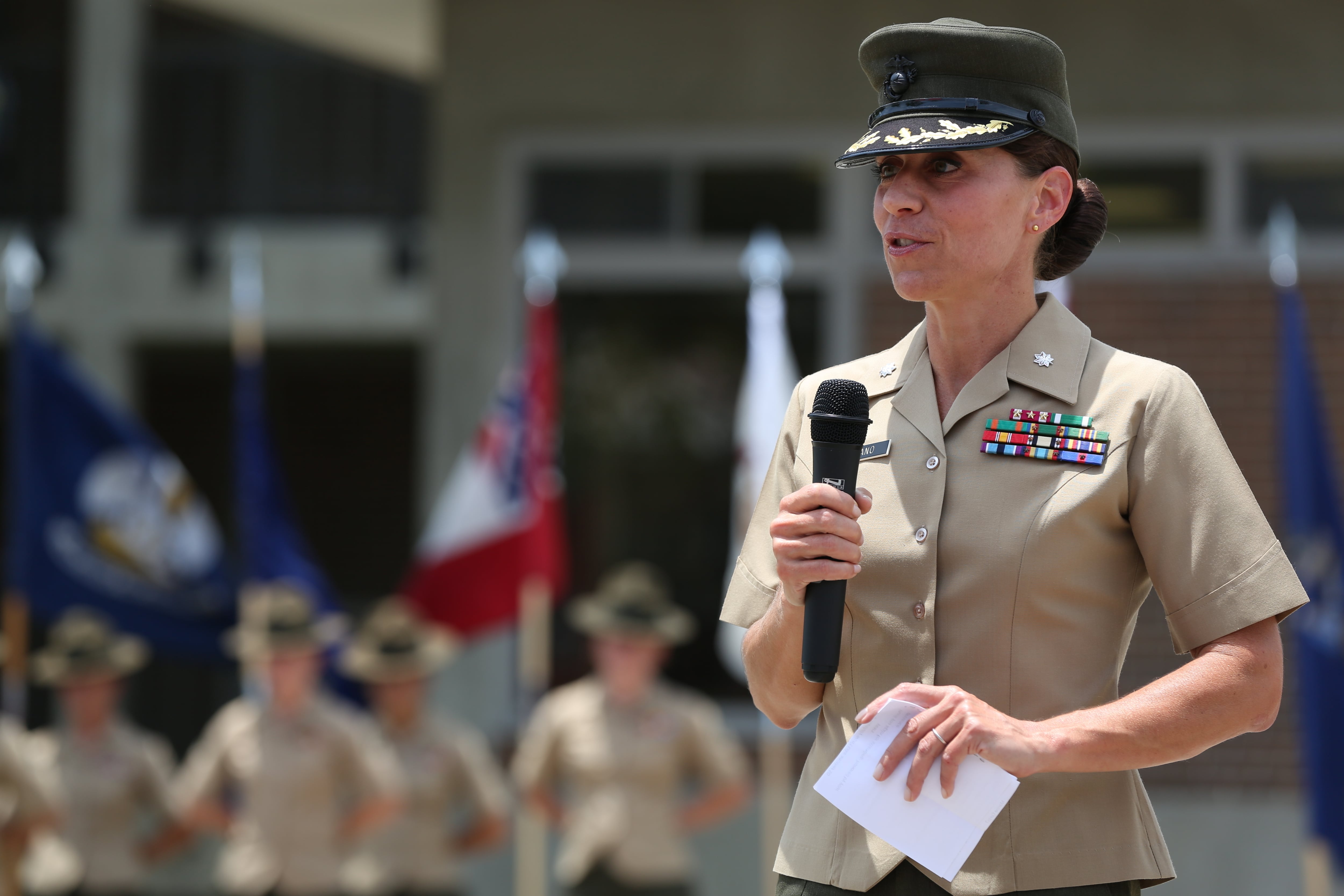
Lt. Col. Kate Germano, who led the Corps' only all-female recruit training battalion, said male and female Marines must have the same standards and the same training for women to be fully accepted.
Photo Credit: Marine Corps
Germano, whose leadership style came under fire this summer when she was deemed a hostile leader and removed from her post, said the Marine Corps could take that a step further by integrating recruit training so young male and female Marines get used to serving around each other from day one.
Enlisting the right people to be Marines will also be more vital than ever, she said, and placing quotas or goals in place could pressure recruiters into recruiting quantity over quantityquality.
"We need to get back into the high schools and start recruiting heavily in the female athletics," said Germano, who now works at the Washington Navy Yard after being removed from her post at the recruit depot. "...To get the right people and then make sure the expectations for men and women are the same."
Changing course
Brown and Preston were two of roughly 100 women who left their units to participate in the Ground Combat Element Integrated Task Force experiment. They worked alongside about 300 men in infantry, weapons, artillery and mechanized units in North Carolina and California, where Marine officials and scientists carefully studied their performance.
A number of female Marines were dropped or sidelined during the experiment due to injury. Data released by the Marine Corps after the experiment wrapped up in July indicated that male Marines far outperformed the women in a variety of tasks. Women were slower, fired their weapons with less accuracy and were more susceptible to injury, the data showed.
In September, then-Commandant Gen. Joseph Dunford requested — based on that data — that certain jobs in the Marine Corps remained closed to women. But Carter said while he reviewed the Corps' data, he "came to a different conclusion." The military is a joint operation, he said, and the services need to ensure they are recruiting and retaining troops from a wide pool.
Getting Marines on board with this change could take time, Germano said, especially among higher-ranking Marines.
"I think the most difficult individuals to sway are the older generation," she said. "The younger Marines, most of them have seen women excel in team sports in high school and they've seen women be outspoken. They've had mothers, aunts and sisters as leaders, so I think it's going to help them embrace this."
Germano added that it will take accountability at every level of leadership to get Marines on board with such a big change, though, from regimental commanders down to the most junior platoon commanders.
Since no women have yet passed Infantry Officer Course — 29 female officers attempted it, but none graduated — Marines like Brown and Preston who want to join previously closed fields will have male leaders. But Preston said that doesn't bother her.
"I've seldom have female higher-ups," she said. "A leader is a leader. If they're good, that's all that matters."
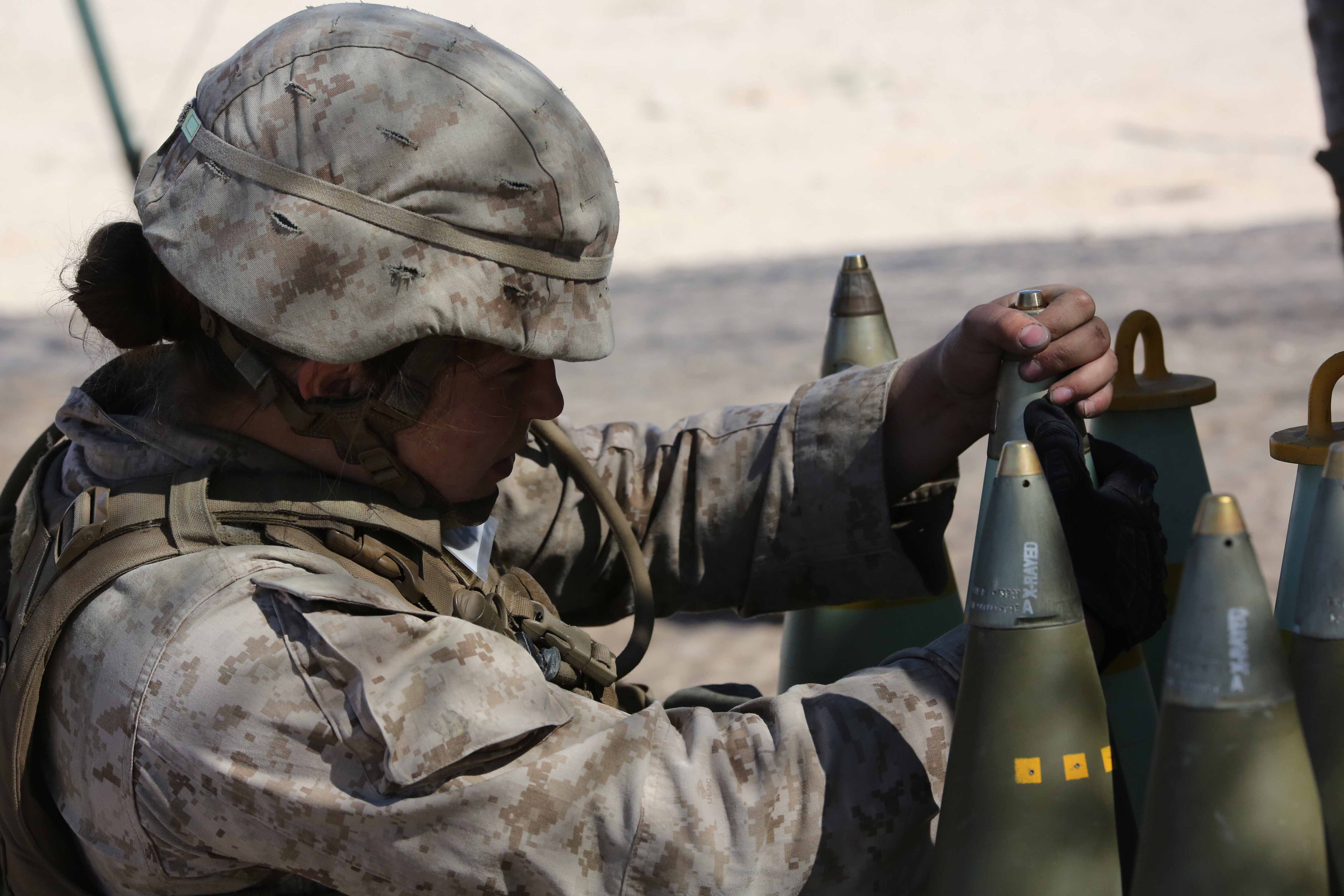
Cpl. Angelique Preston prepares an M795 High Explosive projectile before a fire mission in California. Preston, the daughter of an Army artillery officer, said she hopes to become a field artillery cannoneer now that it will be open to women.
Photo Credit: Marine Corps
Now that several fields are opening to women, they'll have to face gender-neutral standards in order to be allowed to serve in them. Of the female Marines who've gone through ITB or participated in the integrated experiment, Brown and Preston say few plan to volunteer for new assignments. Brown said there are only "a few whose heart really lies with the infantry." And Preston said she doesn't know any other female Marines who want to be artillerymen.
"The reality is that not a lot of women are going to want to lat move into these jobs," Preston said. "It takes a certain kind of mindset."
Even if they're the only female members of their future units, though, neither worries about any fallout from male Marines. They're confident they can do the jobs, and have waited their whole lives for what's ahead.
"My dad’s an artillery officer in the Army," Preston said. "When I was a kid, I remember he showed me videos of howitizers, and I said I wanted to do this. He said, 'Not in my lifetime.' But when he came to my graduation, someone said he looked proud."
